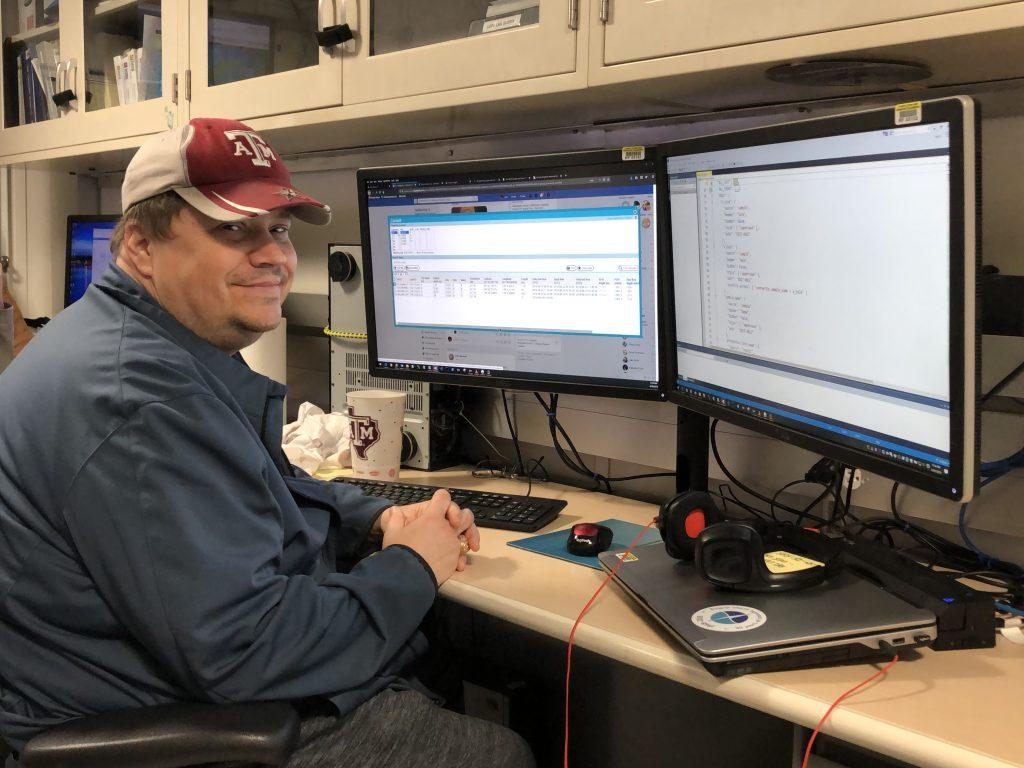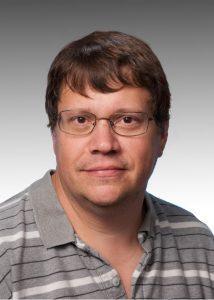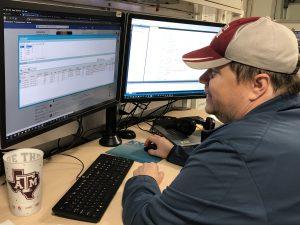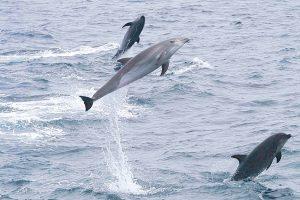
Career Spotlight: Sr. Application Developer Jon Howell

Jon Howell Interview
Please describe your job duties while on the JR. What will you be doing on a daily basis?
-
-
-
-
-
-
-
-
- I support the LIMS database and systems and support the data collection tracks and reporting applications.
-
-
-
-
-
-
-
Why is your work (or research) important? What question are you trying to answer or how does your work/research help assist/advance scientific knowledge?
-
-
-
-
-
-
-
-
- Without the database and application no data can be stored or retrieved.
-
-
-
-
-
-
-
Why the ocean? What made you choose a career at sea or career that involves the ocean?
-
-
-
-
-
-
-
-
- I have been involved with the water and ocean since I was a kid.
-
-
-
-
-
-
-
What are you most excited about for this expedition and/or being on the JR?
-
-
-
-
-
-
-
-
- This is my career for the past 7 years, since October of 2012
-
-
-
-
-
-
-
Describe one instrument, program, or skillset that is essential for you to do your job?
- Oracle Database Knowledge. Our application stores the data on an Oracle database. There is seldom a day that goes by where I am not engaged in work in the database. Such as doing searches for specific conditions the scientist are looking for, to applying changes to text of the wording as scientist discuss and revise their analysis. One of the largest aspects of my work is making sure that the data from the ship is properly packed up and sent to shore for generations of people to see. This, seemingly simple task, is one of our most important and we constantly find ways to make it more effective.

What are three things you think are needed for a successful expedition at sea? And Why!
- Patience: Things never go exactly as planned and these ‘shifts’ can frustrate people – which really adds unneeded tension. We have to know how to take a step back and roll with the waves. This trip will have the potential for weather issues. This can cause frustration and yet we must always be aware of dangerous high sea potentials.
If you could answer one question about our Earth – what would it be and why?
- What are the complex items that form our environment and how does each part of that impact the overall picture? This, I am sure, is incredibly complex. I’d probably spend the rest of my life trying to present that information to others but it would be a job worth doing.
What is your favorite sea creature and why?
- Dolphins! Their life appears to be one that is mostly care free.

When did you know you wanted to pursue a career in science or an ocean science career?
- 1980’s when A&M took over the base program.
What do you personally hope to gain or experience while on EXP383?
- As I am out on expeditions a couple times each year, I do not have science targets for the expeditions. My targets are on the software that is used during each trip. Our current major goal is a software design that will reduce the complexity of most of our applications, making it easier for current and future programmers to support and write new tools. We seldom have a trip where a new tool is not presented. Recently we added a major new instrument that provides x-ray images of the cores. After using it on a trial basis, we are now looking at the long-term future for this technology. You never know how well a new tool will be received by the science community until you get the results to review. The X-Ray Imager is getting very positive reviews.
What message do you have for anyone considering a career as an applications developer in the ocean sciences?
- 1 – Make sure you do not get really sea sick. The ship doctor can help but there are times when people come on the ship and they are barely able to function.
- 2 – Be ready for a major widening of your experience as a programmer. In a ‘normal’ career as a programmer you will work with a fairly limited set of tools and programming languages. Here, you are going to work with dozens of them and will be swapping between languages and tools daily. Today, I will work with Java, C#, SQL. Tomorrow, I might be working with Angular and Groovy. Next week HTML and CSS.
- 3 – You will be asked to work very close with other people. Twelve hours a day, 7 days a week, for two months straight in the same room with the same folks just a couple feet away. On the ship there is very little real privacy.
What do you do back home when not on the JR?
- I support the same applications often writing new pieces for the ship to use in the future.
Do you get seasick? If yes or sometimes, please describe how you cope with it.
- No – I have been on boats and ships since childhood. I have been in calm and heavy seas and even a few pretty intense storms. I have never been seasick. I am really lucky there.
The need for space comes in many forms. Which type of space, in general, is the most important to you? (choose one)
- ___ Personal Space
- ___ Creative Space
- ___ Outdoor Space
- ___ Emotional Space
- ___ Physical Space
- ___ Spiritual or Meditative
- ___ Outer Space
- ___ Community Space
- ___ Quite Space
- _X_ Productive/Work Space
- ___ Digital/Virtual Space
- ___ Public Space
- ___ Inner Space
- ___ Other:
Why that type of space? What makes it important to you and will it be available while on the JR?
- Programming is a mental skill and distractions interfere with it. I typically put on headphones and play music to drown out the noise of things going on around me. It would be nice if there were smaller, less congested spaces.